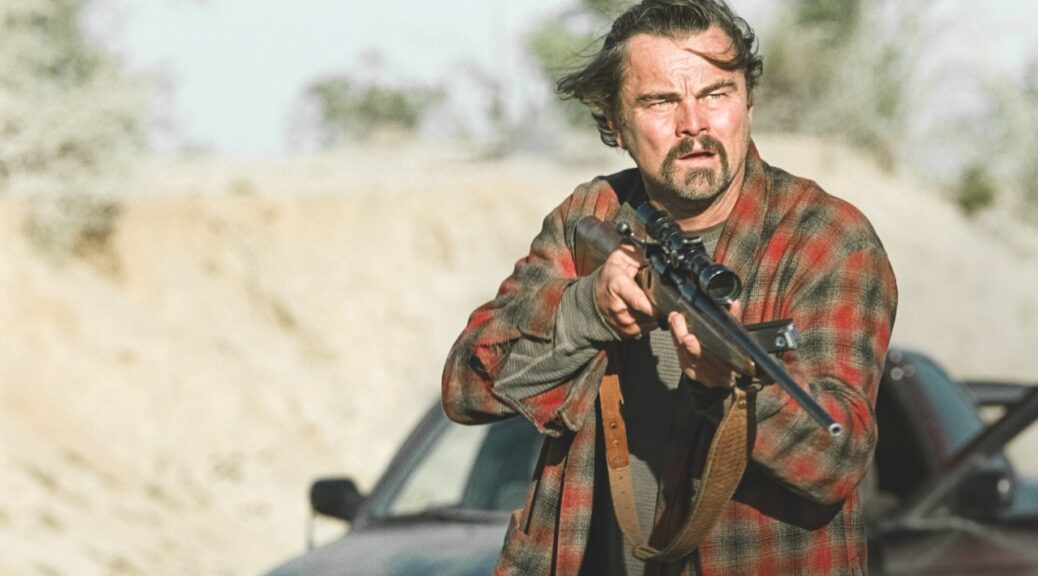One Battle After Another
by Hope Madden
Paul Thomas Anderson, still batting 1000.
This f’ing guy! He spends four or five years directing obscure music videos, hits us with a masterpiece of modern cinema, then back to the tunes. The Phantom Thread, The Master, Boogie Nights, Punch Drunk Love, Licorice Pizza, Hard Eight, Inherent Vice, Magnolia, There Will Be Blood—you get whiplash from genre and stylistic hopscotch. But in each is a gorgeous pathos, a meticulous cinematic experience, and ensemble piece teeming with dozens of the most stunning performances you’ve ever seen.
So, you know what to expect when you sit down to One Battle After Another.
Anderson based the film on Thomas Pynchon’s Vineland, which contrasted the revolutionary spirit of America of the 1960s with the era of Ronald Reagan’s reelection. Anderson finds parallels in the generational necessity for revolution with Bob (Leonardo DiCaprio).
Years ago, Bob and Perfidia Beverly Hills (Teyana Taylor, owning the screen no matter who she shares it with) were revolutionaries disrupting W.’s ugly border policies, among other things. But everything went to hell, much thanks to Col. Steven J. Lockjaw (great name!). And about 16 years later, Lockjaw comes looking for Bob and the baby he disappeared with off-grid all those years ago (Chase Infiniti).
Sean Penn is Lockjaw, and he hasn’t been anywhere near this compelling or transformed since Milk (although he was a ton of fun in Licorice Pizza).
Though the massive cast is characteristically littered with incredible talents crackling with the electricity of Anderson’s script, Benicio del Toro stands out. He brings a laidback humor to the film that draws out DiCaprio’s silliness. While much of One Battle After Another is a nail-biting political thriller turned action flick, thanks to these two, it’s also one of Anderson’s funniest movies.
It may also be his most relevant. Certainly, the most of-the-moment. A master of the period piece, with this film Anderson reaches back to clarify present. By contrasting Bob’s paranoid, bumbling earnestness with the farcical evil of the Christmastime Adventurer’s Club, he satirizes exactly where we are today and why it looks so much like where we’ve been during every revolution.
But it is the filmmaker’s magical ability to populate each moment of his 2-hour-41-minute run time with authentic, understated, human detail that grounds the film in our lived-in reality and positions it as another masterpiece.

